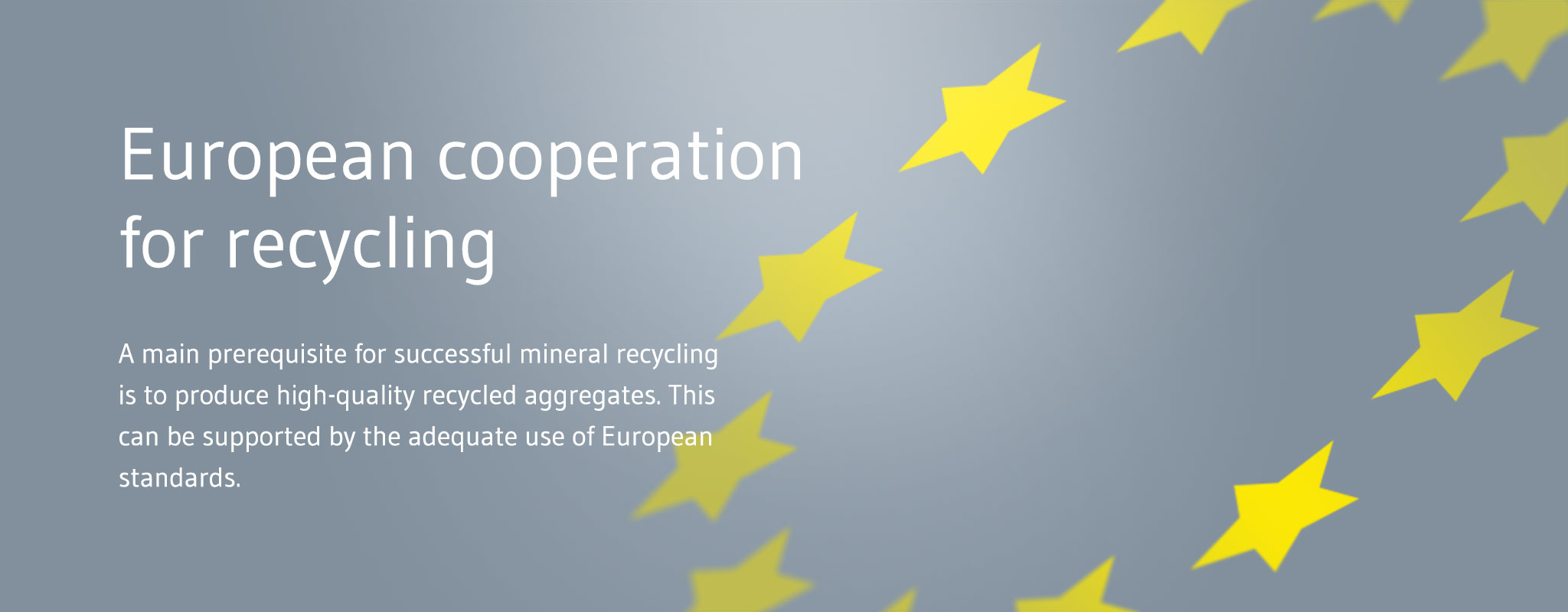Contact
REMEX GmbH
Am Fallhammer 1
40221 Düsseldorf
Germany
T +49 211 17160-0
F +49 211 17160-420
Email
The view from the European recycling federation FIR
The Fédération Internationale du Recyclage (FIR) represents the European recycling industry of Construction and Demolition Waste (CDW) and Incinerator Bottom Ash (IBA). The FIR was established in 1991 by the recycling associations of some EU Member States. Early on they recognised that cooperation was needed to build a functioning recycling industry. Slowly this industry started growing in other parts of Europe, and so did the FIR. Based on the international experience of the federation, REMEX asked the Secretary General of the FIR, Geert Cuperus, what he has to say in regard to the current recycling developments.
International viewpoint
Geert Cuperus, Secretary General FIR
"Our aim is to achieve high-quality recycling in all parts of Europe."
Hello Mr Cuperus, thanks for taking the time today. FIR stands for Fédération Internationale du Recyclage. What do you do?
Cuperus: Our association, federation represents the recycling industry in Europe of construction an demolition waste and incinerator bottom ash. And our aim is to achieve high-quality recycling in all parts of Europe.
And what is your specific role in this federation?
Cuperus: I am the Secretary General of the federation. I run the ongoing business in the federation. I take care of public affairs, and I am also the contact person for the European institutes.
Thus, you liaise with official institutions and members. Can you provide more detail on the FIR members?
Cuperus: Our members are primarily national recycling associations. Unfortunately, there are not such associations in all member states in Europe, so we also have individual companies as a member. And very often these individual companies are the frontrunners in their country.
And your field of activities includes technical and environmental legislation as well as new developments and innovations in the industry?
Cuperus: Yes, it covers all aspects that you mentioned. It covers the policy and legislation issues. We try to set the conditions of policy and legislation at the right situation for recycling. We also look into technical issues, standardisation on European level. And we discuss with our members technical issues, technical development et cetera.
You also benchmark between European countries. For example, if a country has more experience in a certain area you ensure the according knowledge transfer?
Cuperus: Yes, absolutely. It’s a main part of our business actually, to exchange information and experiences from one member state to another member state. Specifically the expertise in such countries as Germany, the Netherlands, Belgium which have a high level of recycling, and take this information and knowledge to other countries.
You just mentioned the Netherlands. In 2012 they introduced the Green Deal. Since then, there have been significant investments in order to improve the quality of incinerator bottom ash. What can you tell us about this topic?
Cuperus: Well, that is a very interesting development in the Netherlands. Bottom ash is widely used in the Netherlands but it is used in an isolated situation, that means this is because of the leaching behaviour of the material. And the Green Deal has a goal to improve the leaching behaviour of incinerator bottom ash which means that is has less impact on the environment. So therefore new technologies are being developed, like washing of incinerator bottom ash. And these new technologies can be spread all over Europe of course.
And do you think that will have an impact on the acceptance of the material? Because this seems to be one of the main challenges the industry is facing.
Cuperus: Yes, that is correct. The main issue of concern for us is the acceptance of the recycled products. Also from construction and demolition waste. We still see that these materials are not accepted as they should be accepted because they are very good performing materials. These new technologies, for instance for incinerator bottom ash, they will improve the quality, they will improve the environmental behaviour of the material, so they will also improve finally the acceptance of authorities and of the public.
In your opinion: What would be the most important issue that has to be addressed on European level, so that we will see a positive development in regard to mineral recycling?
Cuperus: Well, the main thing is, that is stays high on the agenda. And we see that happening for construction and demolition waste. This is high on the agenda due to high recycling targets, European recycling targets, which will be… they are binding for all member states. And for incinerator bottom ash we talk to the commission and we try to also get incinerator bottom ash high on the agenda because it is good material, you can produce good quality material from it. And we think that we should work on it together with the commission and our federation.
Thank you very much for this interview Mr Cuperus.



